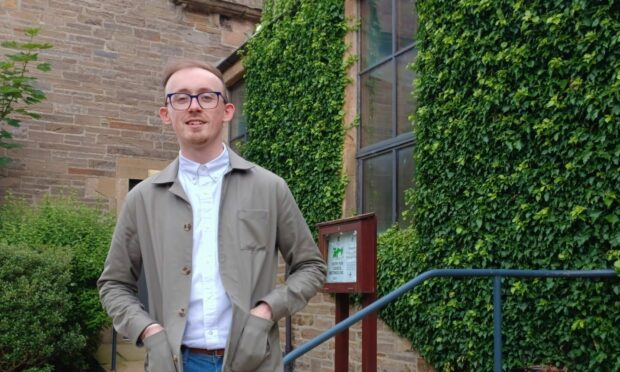After May’s council elections, the Orkney Green Party saw two of its five council candidates earn a seat in the county’s council chamber.
While there were also two green councillors in the county at the end of the last term, this was only after John Ross Scott changed from being independent to green in March last year – with only just over a year of that council left to see out.
This time, the party has seen its councillors – Mr Scott and Kristopher Leask – take their seats right from the get-go.
So, as the only party-affiliated councillors in that chamber, has the experience been different for them?
With one term as a new councillor now under his belt, Mr Leask says he thinks a key difference will be behaving “proactively rather than reactively.”
Mr Leask says he’s received a very warm welcome from other elected members.
Agreeing to disagree
He’s taken up the role of vice-chair for council’s planning committee, local review board, licensing committee and licensing board.
These are interesting roles to take up as his chairmen are both councillors who made their views about the climate emergency clear during election time – views that are on the other side of the fence from Mr Leask and the Orkney Green Party.
However, he says he has very good relationships with both Mr Tullock and Mr Tierney.
They are able to agree to disagree, he says.
“Even councillors that I have polar opposite views to, I get on very well with.
“Yes, there are differences with colleagues on different issues, but it’s been very nice that colleagues have been supportive and inclusive in that regard.
“In terms of how John and I work as members of a party, we’re on different service committees – John’s on Education, Leisure, and Housing and I’m on Development and Infrastructure.
“So, that dictates what we cover. Obviously, I’m interested in housing but I’m not on the committee that covers it so I’m limited with how much I can engage with that issue.
Orkney Greens teaming up
“This way of working is maybe in effect less right now but it will certainly be the case as we go forward and one of us will take the lead on certain issues.
“It’ll increase as the new council becomes more settled and established. We’ll also gain more of a track record for the things we’re working on.”
He says splitting the portfolio of issues like this will allow them to have “maximum coverage and maximise their effect and impact.”
He has been working on many of the issues you’d expect a green councillor to work on: net-zero, decarbonisation, development planning, low-carbon travel, and tourism.
He’s also been working with independent councillor Stephen Clackson on a new by-law which would protect Orkney’s honey bees.
An active role in the council’s climate change consultative group is also in his sights.
But, Mr Leask points out that, while we are one term into the new council, many of the sub-committees are yet to get going.
He thinks councillors will really be “in the thick of it” by around mid-September.
Next term: ‘in the thick of it’
The list of issues that the Orkney Green councillors plan to take a large role in is lengthy. It includes the tourism strategy, a variety of infrastructure projects, the local development plan, and making sure the new climate change officer plays an important role at School Place.
But surely all the new councillors will want to make their mark? What advantage does being in a party provide?
Mr Leask said: “We’re taking a very proactive approach. If something doesn’t exist, we’re going to create it.
“A slight weakness of a single administration local authority with apolitical groups is that you don’t have blocks of people progressing things forward.
“It can unintentionally drift into being reactive rather than proactive. I’m very conscious that is not our approach.”
Are you interested in more exclusive and breaking Highland and Islands news from the P&J? If so, why not join our dedicated Facebook page HERE

Conversation